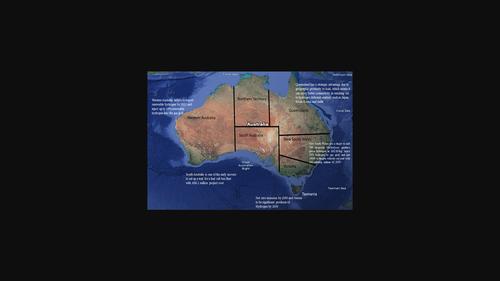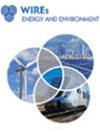Overview of hydrogen economy in Australia
IF 5.4
3区 工程技术
Q2 ENERGY & FUELS
引用次数: 22
Abstract
The hydrogen economy is on the verge of expansion across the globe. Leading economies like Japan, South Korea, China, the United States of America, Germany, and Australia are steadily pushing for greater hydrogen integration into their energy systems. Australia's thrust on the hydrogen economy becomes prominent with clear strategic actions to enhance clean technology‐based hydrogen production. The paper critically analyses Australia's strategies and policies to expand its hydrogen economy. The paper found that Australia fixed ambitious targets to increase hydrogen penetration in the domestic market and export to Japan, China, and South Korea. Australia's national hydrogen strategy emphasized creating a strong hydrogen value chain to capitalize on abundant renewable resources. This article affirms that Australia has enormous potential for cost‐competitive green hydrogen production and export. Australia's cost‐competitive green hydrogen production with modern supply chain infrastructure will offer competitive advantages over the other exporters. States/regions are trying to align their hydrogen policies and strategies along the lines of the national strategy. However, some concerns demand timely attention from the stakeholders. Australia should address multiple challenges, including a lack of investment, lower public awareness, and insufficient infrastructure to push hydrogen adoption in the domestic market. Further, Australia must utilize its strengths to take advantage of the emerging hydrogen markets in Japan, China, and South Korea.

澳大利亚氢经济概况
氢经济正处于全球扩张的边缘。日本、韩国、中国、美国、德国和澳大利亚等主要经济体正在稳步推动将氢纳入其能源系统。通过明确的战略行动,澳大利亚对氢经济的推动变得突出,以加强基于清洁技术的氢生产。本文批判性地分析了澳大利亚扩大氢经济的战略和政策。该论文发现,澳大利亚制定了雄心勃勃的目标,以提高氢在国内市场的渗透率,并向日本、中国和韩国出口氢。澳大利亚的国家氢战略强调建立一个强大的氢价值链,以利用丰富的可再生资源。这篇文章肯定了澳大利亚在具有成本竞争力的绿色氢生产和出口方面具有巨大的潜力。澳大利亚具有成本竞争力的绿色氢气生产和现代供应链基础设施将为其他出口国提供竞争优势。各州/地区正试图根据国家战略调整其氢政策和战略。然而,有些问题需要利益相关者及时关注。澳大利亚应该解决多重挑战,包括缺乏投资、公众意识低下和基础设施不足,以推动氢在国内市场的采用。此外,澳大利亚必须利用其优势,利用日本、中国和韩国新兴的氢市场。
本文章由计算机程序翻译,如有差异,请以英文原文为准。
求助全文
约1分钟内获得全文
求助全文
来源期刊

Wiley Interdisciplinary Reviews-Energy and Environment
ENERGY & FUELS-
CiteScore
11.70
自引率
3.30%
发文量
42
期刊介绍:
Wiley Interdisciplinary Reviews: Energy and Environmentis a new type of review journal covering all aspects of energy technology, security and environmental impact.
Energy is one of the most critical resources for the welfare and prosperity of society. It also causes adverse environmental and societal effects, notably climate change which is the severest global problem in the modern age. Finding satisfactory solutions to the challenges ahead will need a linking of energy technology innovations, security, energy poverty, and environmental and climate impacts. The broad scope of energy issues demands collaboration between different disciplines of science and technology, and strong interaction between engineering, physical and life scientists, economists, sociologists and policy-makers.
 求助内容:
求助内容: 应助结果提醒方式:
应助结果提醒方式:


